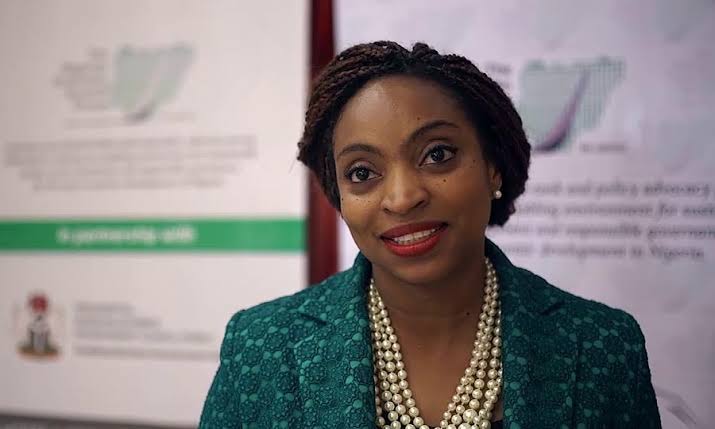The Presidential Enabling Business Council (PEBEC) in a move to depict and enlighten Nigerians on how bureaucratic bottlenecks are addressed by the government has staged a play.
PEBEC on Sunday performing the play, titled; “Welcome To Easiland: The Future Is Here”, says the performance staged at the Landmark Event Centre, Lagos, portrays how businesses in “Easiland”, likened to Nigeria, are sabotaged and ways to do things right.
Special adviser to the President on Ease Of Doing Business, Dr Jumoke Oduwole, said that the play was also part of activities to mark the fifth anniversary of PEBEC.
According to her, PEBEC is a council that works on bureaucratic bottlenecks and legislative interventions for small and medium sized enterprises.
“As you saw from the play, those are realities that we have captured over the time. These are the realities that the team worked with.
“From the play, you saw some of the reforms that we have implemented. Sometimes, some errant officers will try to sabotage the reforms and we urge people to also lodge complaints.
“We have received a lot of compliments and we have also received a lot of complaints concerning the saboteurs within the system,” she said.
Oduwole said the play was initially staged in Abuja during the Independence Day weekend after which people requested that the play be brought to Lagos.
“We had to squeeze it into the budget so we could bring the play to Lagos over New Year’s day just to celebrate the season and also to give hope and inspiration to Nigerian entrepreneurs.
“This is to enlighten them, as a lot of them don’t know about the reforms. You saw the reforms at the Corporate Affairs Commission (CAC) and the Customs. A lot of things are going on that people don’t know about,” she said.
Oduwole said that the play was adopted as a form of enlightenment having realised that Nigerians love comedy and drama, adding that it was the perfect way to deliver the message.
She further encouraged the people to use report.gov.ng to lodge complaints if the reforms did not work, as feedbacks would be necessary to address bureaucratic bottlenecks.
According to her, the Ease of Doing Business is something that is here to stay and there is no need to know anyone in government to get the required services.
“People don’t need to know ministers or someone at the presidency. There is need to have an enabling environment where the legislative and regulatory bottlenecks are removed.
“Government parastatals’ websites are working. You can use the technology to do your processes, your permits, nobody will tell you happy weekend or anything just to extort you.
“That is the message that we’re preaching. And we want it to be entrenched in people’s hearts. We want them to demand it as a right and we want government to deliver it as our responsibility, so that’s what we’re doing here today,” she said.

Oduwole said that some other states were also requesting that the play be brought to their people just as there are deliberations on further ways to take the movie closer to the people.
The project manager, Mr Ayokunu Ojeniyi, said the idea about the play is to first of all celebrate the new year and to communicate to Nigerians that the country belongs to everyone.
“Government and citizens have their roles and together we can make Nigeria a place that we desire. So as I said, “Easiland” represents our collective will as a nation.
“It is a land on a journey itself and there are quite a lot of similarities between Easiland and Nigeria. As the play depicts, if everybody does their own path, you will see that the country that we want comes to fruition,” he said.
Ojeniyi added that the idea of a staged play was chosen as there was no better way to communicate with people while they have fun and also see themselves as the characters.
“These are the kind of experience that you are not able to get if you are just watching TV or listening to radio.
“However, by watching it and seeing the characters playing a replay of your own experience as a way of resonating with individuals, that way the message can be delivered.
“Just like Nigeria is known for Nollywood, it’s because stories can be told through movies and stage plays. It is just a way of staying with the audience,” he said.









